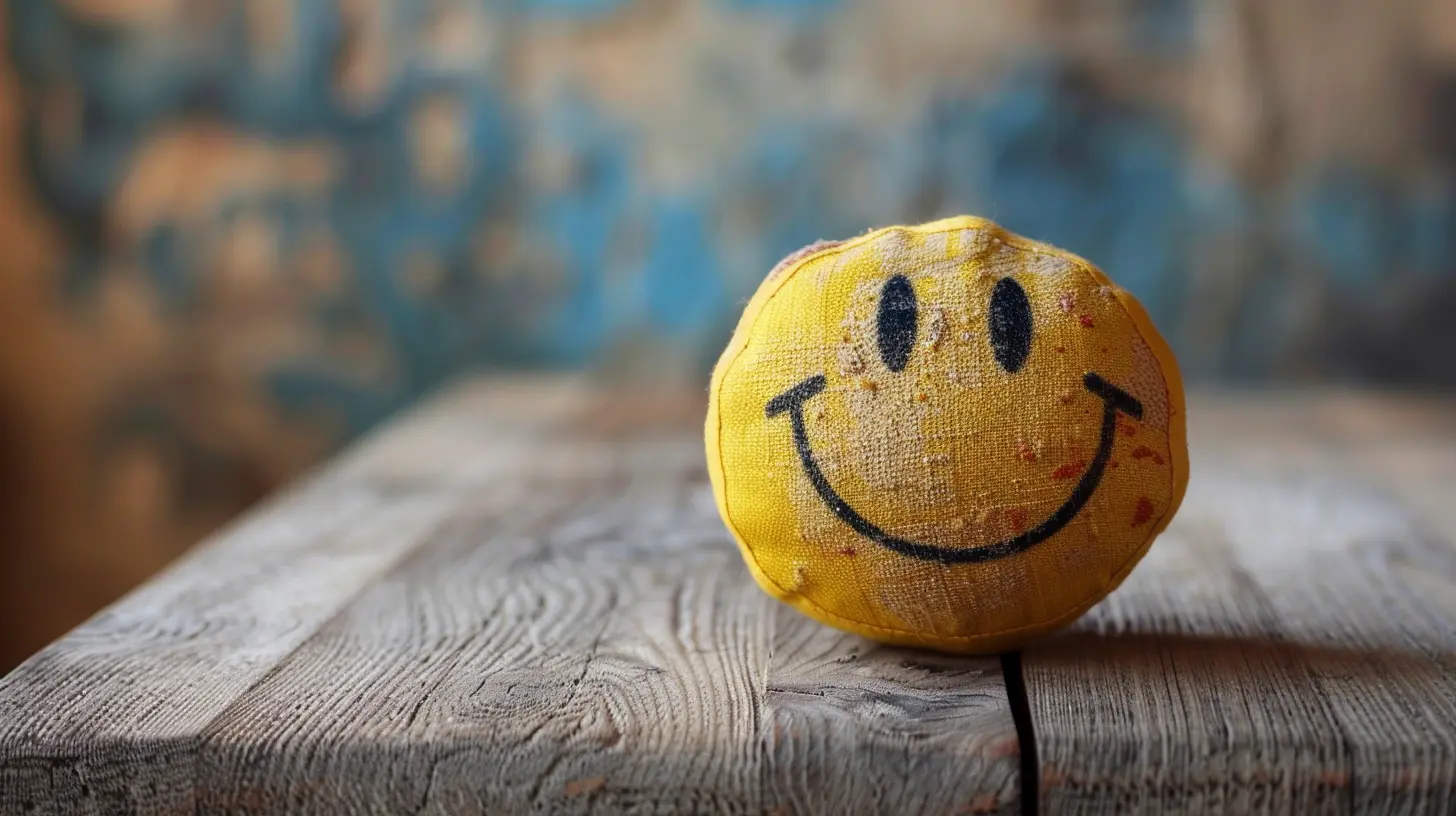The Psychology of Humor: Why We Laugh and Its Benefits
19 September 2025
Humor is a fundamental part of human life. From sharing inside jokes with friends to laughing out loud at a funny movie, humor shapes our interactions, influences our emotions, and even impacts our health. But have you ever wondered why we laugh? What makes something funny? And how does humor benefit us psychologically and physically?
In this deep dive into the psychology of humor, we'll uncover the science behind laughter, the various theories that explain humor, and how a good laugh can enhance our well-being.

What Is Humor?
Humor is a complex psychological phenomenon that involves cognitive, emotional, and social elements. At its core, humor is the ability to perceive and appreciate incongruities, absurdities, or surprises that make us laugh. It often revolves around unexpected or exaggerated situations, wordplay, and irony.But humor is subjective—what makes one person burst into laughter might leave another completely unfazed. This is because humor is influenced by factors like culture, personal experiences, and even personality traits.

The Science Behind Laughter
Laughter is a physiological response to humor, and it’s more than just a simple reaction—it’s actually a complex process that involves multiple areas of the brain. When we find something funny:- The prefrontal cortex helps us process and understand the joke.
- The limbic system (which controls emotions) generates the feeling of amusement.
- The motor cortex triggers the physical response—laughter.
Interestingly, laughter is one of the few universal human behaviors. Regardless of language or culture, people laugh. This suggests that humor and laughter have deep evolutionary roots.

Theories of Humor: Why Do We Laugh?
Psychologists and philosophers have proposed several theories to explain why we find things funny. Let’s look at the three most well-known humor theories.1. The Superiority Theory
This theory, which dates back to Plato and Aristotle, suggests that we find humor in feeling superior to others. For example, slapstick comedy relies on characters making foolish mistakes, triggering laughter in the audience. Think about the classic banana peel slip—it’s funny because we see someone else’s misfortune while knowing we're safe.2. The Incongruity Theory
This is one of the most widely accepted explanations of humor. The idea is that humor arises when there’s a mismatch between what we expect and what actually happens. When something violates our expectations in an amusing way, we laugh.For instance, if someone says, “Why did the scarecrow win an award? Because he was outstanding in his field,” the humor comes from the unexpected wordplay. Our brain anticipates a serious answer but gets a pun instead.
3. The Relief Theory
Sigmund Freud believed that humor serves as an emotional release. According to this theory, laughter helps us relieve tension and pent-up nervous energy. This explains why we often use humor in stressful situations—it's a coping mechanism that helps ease anxiety and discomfort.Ever cracked a joke in an awkward moment just to break the tension? That’s the relief theory in action!

Psychological and Emotional Benefits of Humor
We all know that humor makes life more enjoyable, but its psychological benefits go much deeper than just having a good time.1. Reduces Stress and Anxiety
Laughter reduces cortisol, the hormone responsible for stress. When we laugh, our brain releases endorphins—our body's natural feel-good chemicals—leading to relaxation and improved mood.2. Strengthens Social Bonds
Humor brings people together. Shared laughter fosters connections, improves communication, and strengthens relationships. Think about how easily friendships form over inside jokes or funny experiences.3. Enhances Mood and Combats Depression
Laughter acts as a natural antidepressant. It increases dopamine levels, which play a key role in mood regulation. Regular exposure to humor can help alleviate symptoms of depression and make life feel a little brighter.4. Improves Cognitive Function
Believe it or not, humor makes you smarter—at least in a way. Laughing stimulates multiple areas of the brain, enhancing creativity, problem-solving, and memory retention. So the next time you’re struggling with a mental block, try watching a comedy sketch!5. Increases Emotional Resilience
People who use humor as a coping mechanism tend to be more emotionally resilient. They can navigate life’s challenges more effectively, reframe negative experiences, and maintain a positive outlook.Physical Health Benefits of Laughter
Humor doesn’t just improve our mental well-being—it also has tangible effects on our physical health.1. Boosts the Immune System
Studies suggest that laughter strengthens the immune system by increasing the production of antibodies and activating immune cells. This makes our body more resistant to illnesses.2. Improves Heart Health
Laughter has been found to lower blood pressure, improve circulation, and increase oxygen intake. These benefits reduce the risk of heart disease and promote overall cardiovascular health.3. Relieves Pain
Laughter triggers the release of endorphins, which act as natural painkillers. People experiencing chronic pain often report less discomfort after a good laugh.4. Promotes Relaxation and Better Sleep
Ever felt relaxed and sleepy after a good laugh? That’s because laughter relaxes the muscles, reduces physical tension, and helps induce better sleep.
The Social Role of Humor
Humor plays a critical role in social interactions. It helps us connect with others, diffuse tense situations, and create a sense of belonging. Whether it’s through sarcasm, irony, or playful teasing, humor serves as a powerful communication tool in all types of relationships.Additionally, humor is often used to establish dominance, regulate group dynamics, and even influence others. Politicians, marketing strategists, and comedians alike use humor to engage their audience and make important messages more memorable.
How to Use Humor to Improve Your Life
So, how can we incorporate more humor into our daily routine? Here are some simple ways to inject laughter into your life:- Surround yourself with funny people – Spend time with friends or family members who make you laugh.
- Watch comedies and stand-up specials – Whether it’s a funny show or a stand-up comedian, exposing yourself to humor regularly can boost your mood.
- Follow humorous social media pages – A quick scroll through a meme page can instantly lift your spirits.
- Learn to laugh at yourself – Don’t take life too seriously. Embracing your quirks and mishaps can make life more enjoyable.
- Try humor therapy – Laughter yoga and humor-based therapy sessions have been proven to improve psychological well-being.
Final Thoughts
Humor is a universal language that connects us, heals us, and makes life more enjoyable. Whether it’s a witty remark, a clever joke, or a simple giggle, laughing adds a spark of joy to our daily lives. More than just entertainment, humor is a powerful psychological tool with profound benefits for our mental and physical health.So go ahead—watch that funny video, share a joke, or reminisce about a hilarious memory. After all, laughter truly is the best medicine!
all images in this post were generated using AI tools
Category:
PsychologyAuthor:

Eliana Burton
Discussion
rate this article
1 comments
Nyx Pacheco
Laughter: nature's secret handshake! It tickles our brains, warms our hearts, and even confuses our pet goldfish. Let's dive into the whimsical world of humor's mind-bending benefits!
October 3, 2025 at 3:26 PM

Eliana Burton
Absolutely! Humor truly is a delightful blend of brain activity and emotional warmth, creating connections that even our pets notice. Let's explore its fascinating effects!


